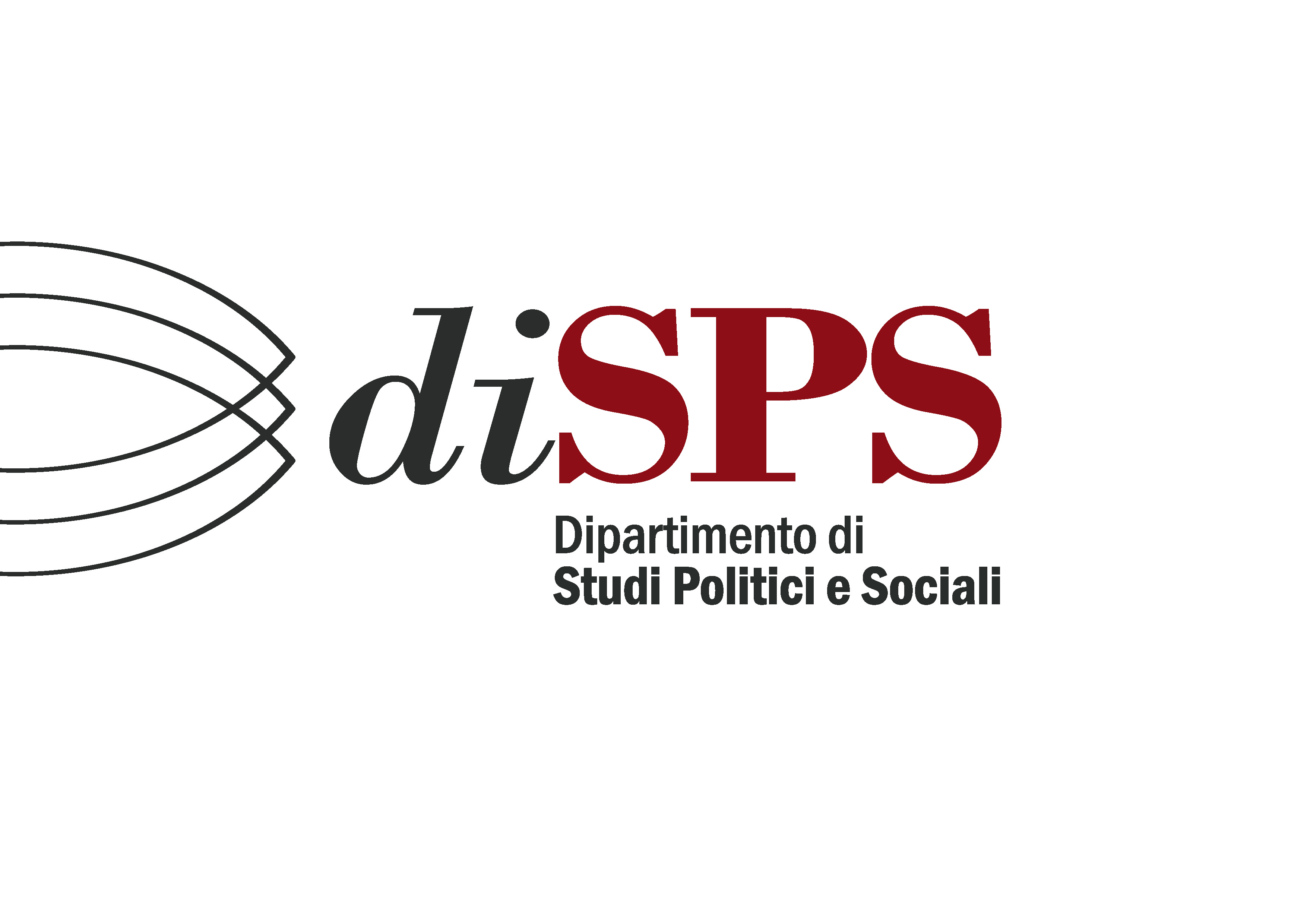Working Papers CSE Anno 2014
Cittadinanza europea e avversione alla moneta unica al tempo della crisi economica. Il caso italiano in prospettiva comparata
Fabio Serricchio
Condividi
Abstract
Is there a link between economic crisis and disaffec-tion toward European citizenship? This paper raises this research question, investigating the behavior of Italian citizens as a particularly interesting case study. For a long time among the most enthusiastic toward European integration project, Italians have changed their attitudes for several reasons. It – therefore – seems pertinent to ask if heavy financial and economic crisis has helped to stir up feelings of distrust towards Europe. Using recent Eurobarometer data, the paper therefore proposes an empirical analysis of the links between economic crisis and European citizenship in the Italian case.
Keywords
European Citizenship; Economic Crisis; Italy.
Full Text: pdf
Doi: 10.14273/unisa-533
References
Almond G., Verba S., The civic culture. Political attitudes and democracy in five nations, Princeton, Princeton University Press, 1963.
Anderson B., Imagined Communities. Reflections on the origin and spread of nationalism, London, Verso, 1991.
Anderson C.J., When in doubt, use proxies. Attitudes toward domestic poli-tics and support for European integration, in «Comparative Political Studies», XXXI, 5, 1998, pp. 569-601.
Banfield E. (1958), Le basi morali di una società arretrata, Bologna, il Mu-lino, 1976.
Battistelli F., Bellucci P., L’identità degli italiani tra euroscetticismo e euro-pportunismo, in «Il Mulino», 1, 2002, pp. 77-85.
Billig M., Banal nationalism, London, Sage, 1997.
Bellucci P., Sanders D., Serricchio F., Explaining European Identity, in Sanders D. et al. (eds.), The Europeanization of National Politics? Citi-zenship and Support in a Post-Enlargement Union, Oxford, Oxford University Press, 2012, pp. 61-90.
Bellucci P., Serricchio F., Cosa pensano i cittadini dell’Europa? in Bellucci P., Conti N. (a cura di), Gli italiani e l’Europa. Opinione pubblica, élite politiche e media, Roma, Carocci, 2012, pp. 135-156.
Brubaker R. (1992), Cittadinanza e nazionalità in Francia e Germania, Bo-logna, Il Mulino, 1997.
Bruter M., Citizens of Europe? The emergence of a mass European identity, Basingstoke, Palgrave Macmillan, 2005.
Carey S., Undivided loyalty: is National Identity an obstacle to European Integration?, in «European Union Politics», XII, 3, 2002, pp. 387-413.
Castano E. (2004), European Identity: a social psychological perspective, in Hermann R.K., Risse T., Brewer M.B. (eds.), Transnational identities: becoming European in EU, Lanham, Rowman & Littlefield, 2004, pp. 40-58.
Catellani P., Milesi P., Identità regionale, nazionale, europea, in Quadrio Aristarchi A. (a cura di), Nuove questioni di psicologia politica, Milano, Giuffrè, 1998, pp. 219-272
Cinnirella M., Towards a European identity? Interactions between the na-tional and European social identities manifested by university students in Britain and Italy, in «British Journal of Social Psychology», XXXVI, 1, 1997, pp.19-31.
Citrin J., Sides J. (2004), More than Nationals, How identity choice matter in the new Europe, in Hermann R.K., Risse T., Brewer M.B. (eds.), Transnational identities: becoming European in EU, cit., pp. 161-185.
Cotta M., Isernia P., L’Unione europea e le sfide della cittadinanza sovra-nazionale, in Bellucci P., Conti N. (a cura di), Gli italiani e l’Europa. Opinione pubblica, élite politiche e media, cit., pp. 19-30.
Cotta M., Verzichelli L., Il sistema politico italiano, Bologna, Il Mulino, 2008.
Deutsch K., Nationalism and social communication, Cambridge, MIT Press, 1966.
Duchesne S., Frognier A.P., Is there a European Identity?, in Niedermayer O., Sinnott R. (eds.), Public opinion and internationalized governance, Oxford, Oxford University Press, 1995, pp. 193-226.
Eichenberg R., Dalton R.J., Europeans and the European Community: the dynamic of public support for European integration, in «International Organization», 47, 1993, pp. 507-534.
Ferrera M., Gualmini E., Salvati dall’Europa?, Bologna, Il Mulino, 1999.
Gabel M., Interests and integration: market liberalization, public opinion and European Union, Ann Arbor, University of Michigan Press, 1998.
Galli della Loggia E., La morte della patria. La crisi dell’idea di nazione tra Resistenza, antifascismo e Repubblica, Roma-Bari, Laterza, 1998.
Haas E.B., Beyond the Nation-State, Functionalism and International Or-ganization, Stanford, Stanford University Press, 1964.
Hermann R.K., Brewer M.B., Identities and Institutions. Becoming Europe-an in the EU, in Hermann R.K., Risse T., Brewer M.B. (eds.), Transna-tional identities: becoming European in EU, cit., pp. 1-22.
Hix S., The Political System of the European Union, Basingstoke, Macmil-lan, 1999.
Hooghe L., Marks G., Calculation, community and cues: Public Opinion on European Integration, in «European Union Politics», VI, 4, 2005, pp. 419-443.
Huddy L., From Social to Political Identity: A Critical Examination of So-cial Identity Theory, in «Political Psychology», XXII, 1, 2001, pp. 127-156.
Huici C., Ros M., Cano I., Hopkins N., Emler N., Carmona M., Compara-tive identity and evaluation of socio-political change: Perceptions of the European Community as a function of the salience of regional identities, in «European Journal of Social Psychology», 27, 1997, pp. 97-113.
Inglehart R., Cognitive mobilization and European identity, in «Compara-tive Politics», III, 1, 1970, pp. 45-70.
Isernia P., Ammendola T., L’Europa vista dagli italiani: i primi vent’anni, in Cotta M., Isernia P., Verzichelli L. (a cura di), L’Europa in Italia. Eli-te, opinione pubblica e decisioni, Bologna, Il Mulino, 2005, pp. 117-169.
Janssen J., Postmaterialism, cognitive mobilization and public support to European integration, in «British Journal of Political Science», XXI, 4, 1991, pp. 443-468.
Laffan B. (2004), The European union and its institutions as “identity builders”, in Hermann R.K., Risse T., Brewer M.B. (eds.), Transnational identities: becoming European in EU, cit., pp. 75-96.
Lewis-Beck M.S., Economics and elections: the major western democra-cies, Ann Arbor, University of Michigan Press, 1988.
Lindberg L., Scheingold S., Regional Integration: Theory and Research, Cambridge (MA), Harvard University Press, 1971.
McLaren L., Public support for European union: cost/benefit analysis or perceived cultural threat? in «The Journal of Politics», LXVI, 2, 2002, pp. 551-566.
Niedermayer O., Trust and sense of community, in Niedermayer O., Sinnott R. (eds.), Public opinion and internationalized governance, cit., pp. 227-245.
Norris P., The Political Regime, in Schmitt H., Thomassen J. (eds.), Political Representation and Legitimacy in the European Union. Oxford, Oxford University Press, 1999.
Putnam R.D., Making Democracy Work. Civic Traditions in Modern Italy, Princeton, Princeton University Press, 1993.
Renan E. (1882), Che cos’è una nazione, Roma, Donzelli, 1998.
Risse T., European Institutions and Identity change: what we have learned?, in Hermann R.K., Risse T., Brewer M.B. (eds.), Transnational identities: becoming European in EU, cit., pp. 247-271.
Risse T., Neofunctionalism, European identity, and the puzzles of European integration, in «Journal of European Public Policy», XII, 2, 2005, pp. 291-309.
Rusconi G.E., Se cessiamo di essere una nazione, Bologna, Il Mulino, 1993.
Sanchez-Cuenca I., The Political Basis of Support for European Integra-tion, in «European Union Politics» I, 2, 2000, pp. 147-171.
Sanders D., Bellucci P., Toka G., Torcal M., Conceptualizing and measur-ing European citizenhip and engagement, in Sanders et al. (ed.), The Eu-ropeanization of National Politics? Citizenship and Support in a Post-Enlargement Union, cit., pp. 17-38.
Scheuer A., How Europeans see Europe. Structure and Dynamics of Euro-pean Legitimacy Beliefs, Amsterdam, Amsterdam University Press, 2005.
Sani G., The Political Culture of Italy: Continuity and Change, in Almond G., Verba S. (eds.) The Civic Culture Revisited, Boston, Little Brown and Company, 1980, pp. 273-324.
Segatti P., Quale idea di nazione hanno gli italiani? Alcune riflessioni sull’idea italiana di nazione in una prospettiva comparata, in Bettin G. (a cura di), Giovani e democrazia in Europa, Padova, Cedam, 2000, pp. 451-483.
Serricchio F., Sostegno e identità tra i cittadini europei. Il caso di Italia e Spagna, Tesi di dottorato, Siena, Università di Siena, 2007.
Id., Gli italiani e l’Europa: un rapporto che muta tra benefici, «institutional proxies» e identità nazionale, in «Rivista Italiana di Scienza Politica», 3, 2010, pp. 371-396.
Id., Perché gli italiani diventano euroscettici, Plus, Pisa University Press, 2011.
Id., Identità e sostegno tra i cittadini europei, Napoli, Scripta Web, 2012.
Id., Bellucci P., Cosa pensano i cittadini dell’Europa?, in Bellucci P., Conti N. (a cura di), Gli italiani e l’Europa. Opinione pubblica, elite politiche e media, Roma, Carocci, 2012.
Serricchio, F., Tsakatika, M., Quaglia, L., (2012) Euroscepticism and the global financial crisis, in «Journal of Common Market Studies», LI, 1, 2012, pp. 51-64.
Smith A.D., National identity, London, Penguin, 1991.
Smith A.D., National identity and the idea of European Unity, in «Interna-tional Affairs», LXVIII, 1, 1992, pp. 55-76.


